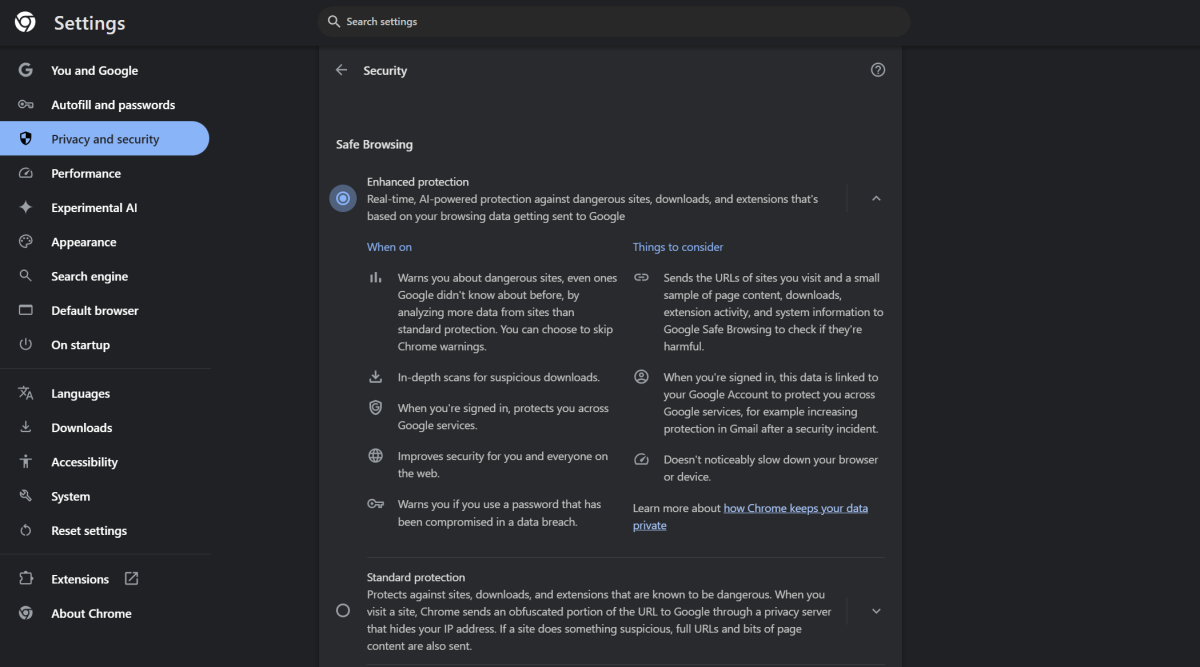Chrome’s AI can block threats and swap bad passwords. Hooray?
AI is the hot buzzword in tech. We’re hearing it repeatedly from major tech companies, as they integrate AI models into their products. The latest company to trumpet the inclusion: Google, in its Chrome browser.
It’s a pair of announcements in recent weeks, with the most current an update to Google’s Enhanced Browsing protection, which screens your browsing data in real time for threats like malware, fraudulent websites, and sketchy extensions. The opt-in program received an official boost from AI, which Google says aids the detection of internet dangers.
Details have yet to be shared of how exactly the AI screening works, which mirrors another piece of news that involves Chrome and its password manager. As shared by Windows Report, the AI settings in an early Chrome build signal that Google’s password manager may soon offer to automatically update passwords known to be compromised, instead of merely prompt you to change them. And again, how AI exactly will contribute to that effort is unclear.
This murkiness is a common side effect of the AI hype and it serves as a good lesson (especially when security is on the line). Ultimately, we should all be focused on what services, apps, and products provide, above all else.
 The most-recent stable release of Google Chrome now includes AI enhancements to its Enhanced protection security option.
The most-recent stable release of Google Chrome now includes AI enhancements to its Enhanced protection security option.PCWorld
For digital security, chaos is breaking loose faster and harder. AI is actually behind this change—it allows bad actors to hack sites, create malware, craft phishing campaigns, and cause other mayhem quicker and with far more sophistication. Using AI to then deploy effective countermeasures is necessary rather than novel. For example, antivirus scanning engines are now leaning on AI to help identify zero-day attacks right as they emerge, as well as catch deepfake content (audio and video) used to spread scams or false information.
But if a company could protect ordinary users like you and me with different methods, that’s more important than AI integration. And should automatic password updates release to the wider Chrome userbase, it’ll only put Google on the same footing as independent password managers that already offer the feature.
Don’t get me wrong, tech companies pushing to protect ordinary users like you and me is a good thing, and the application of AI can be pretty cool from a nerdy standpoint. But we should also expect technology to make our lives easier, without having to know how the sausage is made.
Still, knowing the elements making up your tech (the ingredients in the sausage, if you will) is a good thing. Spotting a company hiding behind trendy language takes less effort.
In Google’s case, how Chrome performs will determine the effectiveness of these upgrades. But even if they’re mild, they’re a positive sign. These days, users need all the security help they can get. If Google and other major tech corporations continue to step deeper into the fray, rather than leaving individuals to fend for themselves, all the better.
